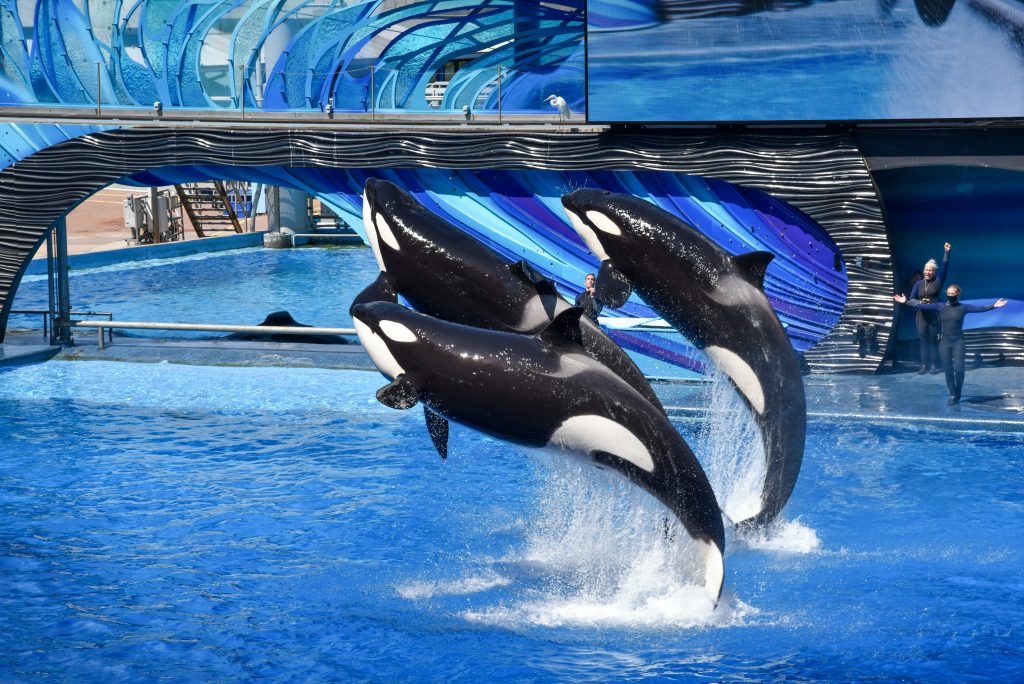One Of The Worlds Most Famous Orcas May Be Released Back To The Wild
After being held in captivity at the Miami Seaquarium for over 50 years, Lolita the orca will be returned to her home in Puget Sound and reunited with her pod.
This article is more than 2 years old

After more than 50 years in captivity, a killer whale named Lolita is being set free. Lolita, also known as Tokitae, has been at the Miami Seaquarium since she and other orcas were taken from Puget Sound in the summer of 1970. She will be returned to her Pacific Northwest home, where her mother and other family members still swim together.
The killer whale’s release was announced last Thursday during a news conference that included the Miami Seaquarium’s owner, the Florida nonprofit Friends of Toki, and Jim Irsay. Irsay is a philanthropist and the owner of the Indianapolis Colts NFL team. He tweeted his excitement about being involved in releasing one of the world’s most famous orcas.
“I’m excited to be a part of Lolita’s journey to freedom,” Irsay said. “I know Lolita wants to get to free waters.” Irsay and his family have funded various causes they are passionate about, including access to mental health care. In 2021, they donated $3 million to Indiana University to help build a new mental health research center.
A return to the open sea will undoubtedly do wonders for Toki’s mental health. According to Big Think, orcas are exceptionally intelligent creatures, with emotions, memories, reasoning skills, and the ability to learn. “Areas associated in the human brain with high-level cognitive and social functions including attention, prediction, social awareness, and empathy are all highly developed in orcas.”
The 57-year-old orca weighs 5,000 pounds and currently lives in a tank that is 20 feet deep, 80 feet long, and 35 feet wide. She spent decades performing for crowds at the Miami Seaquarium before becoming ill. Last year, The Dolphin Company—owners of the Seaquarium—said it would no longer feature her in their shows.
Animal rights activists, including People for the Ethical Treatment of Animals (PETA) have long campaigned for releasing orcas in captivity. “PETA is calling for this to be the first step toward releasing Lolita to a seaside sanctuary, before this long-suffering orca ends up dying in the same cramped tank she’s been confined to for over half a century,” said Jared Goodman, PETA Foundation Vice President, and Deputy General Counsel for Animal Law. In February 2020, a group of Lummi Nation tribespeople from the Pacific Northwest met near the Seaquarium’s parking lot to sing and quietly mark the orca’s 50th year of life at the facility.
“We want the people here in Florida to know Lummi Nation came, three of us, praying,” Raynell Morris, a Lummi tribe member, told The Palm Beach Post. “We want people here and around the world to know Lummi Nation is preparing for her return.” To the Lummi, Lolita is known as Sk’aliCh’elh-tenaut, while others in the region call her Tokitae or simply “Toki.”
Toki is from a pod of orcas known as “L pod”, a family of southern resident killer whales that migrates from northern California to southwestern Canada. Between 1965 and 1975, the southern residents were captured by profiteers who sold them to marine parks across America. Sadly, 58 orcas were removed from their family pods during that decade, and another 13 were killed in attempted captures.
Ocean Sun, the orca believed to be Lolita’s mother, is estimated to be more than 90 years old. Her longevity gives hope that the two will be able to swim together again and that Toki may still enjoy a long life ahead in the wild. However, transporting orcas is not an easy task, and it may be another 18 to 24 months before Toki is finally free.
Rescuers face hurdles in gaining government approval for the $20 million move. When it happens, Lolita will be transported by plane to a Pacific Northwest ocean sanctuary. Initially, she will swim inside a massive net while trainers and veterinarians teach her how to catch fish like other orcas.
Because orcas typically swim about 100 miles every day, Lolita will also have to rebuild her muscles. She will be under 24-hour care during this time. When her caregivers are certain she is able to survive on her own, she will be freed from the net enclosure to reconnect with her family.
“She was 4 when she was taken, so she was learning to hunt. She knows her family song,” Morris said. “She’ll remember, but it will take time.”





